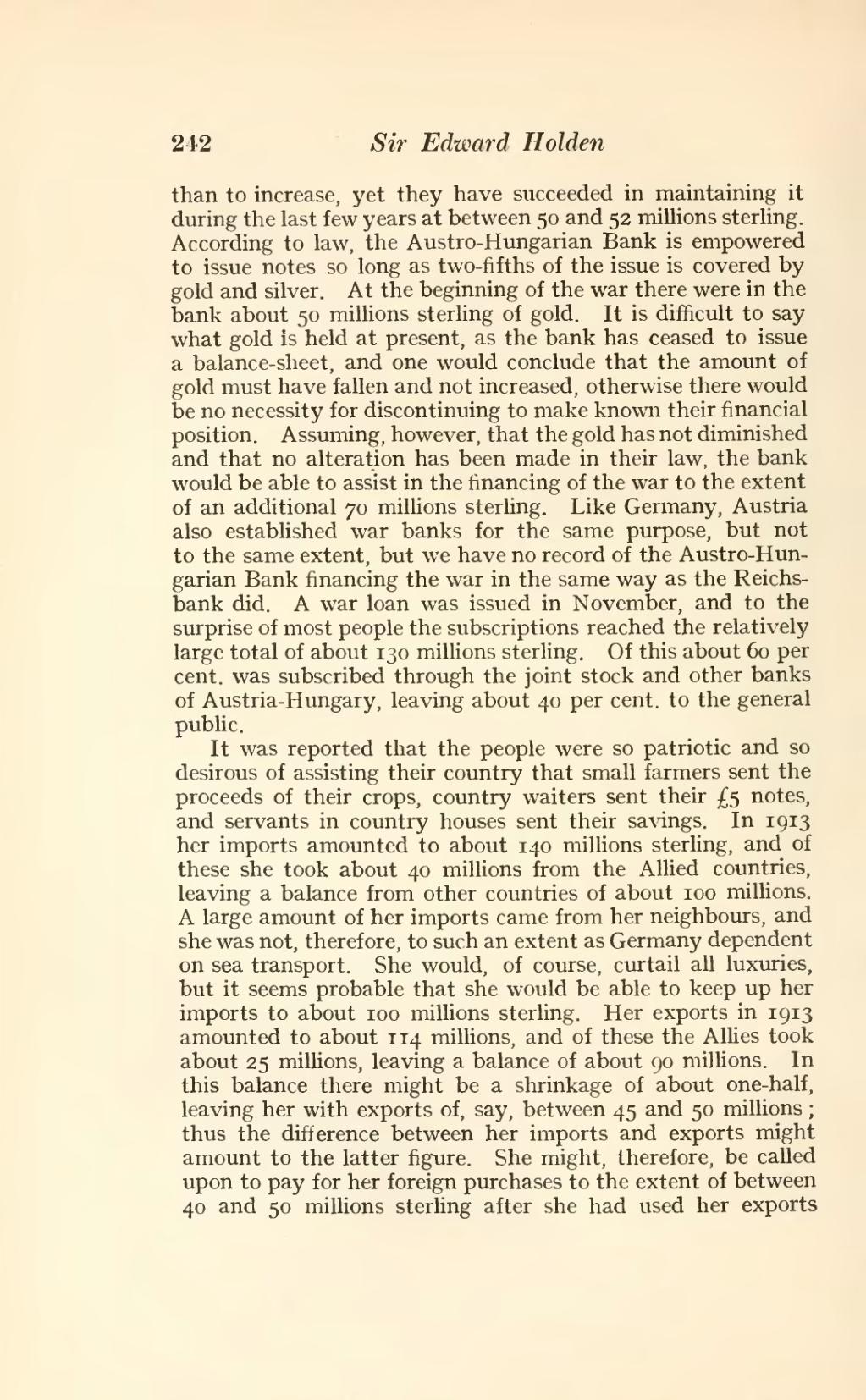than to increase, yet they have succeeded in maintaining it during the last few years at between 50 and 52 millions sterling. According to law, the Austro-Hungarian Bank is empowered to issue notes so long as two-fifths of the issue is covered by gold and silver. At the beginning of the war there were in the bank about 50 millions sterling of gold. It is difficult to say what gold is held at present, as the bank has ceased to issue a balance-sheet, and one would conclude that the amount of gold must have fallen and not increased, otherwise there would be no necessity for discontinuing to make known their financial position. Assuming, however, that the gold has not diminished and that no alteration has been made in their law, the bank would be able to assist in the financing of the war to the extent of an additional 70 millions sterling. Like Germany, Austria also established war banks for the same purpose, but not to the same extent, but we have no record of the Austro-Hungarian Bank financing the war in the same way as the Reichsbank did. A war loan was issued in November, and to the surprise of most people the subscriptions reached the relatively large total of about 130 millions sterling. Of this about 60 per cent, was subscribed through the joint stock and other banks of Austria-Hungary, leaving about 40 per cent to the general public.
It was reported that the people were so patriotic and so desirous of assisting their country that small farmers sent the proceeds of their crops, country waiters sent their £5 notes, and servants in country houses sent their savings. In 1913 her imports amounted to about 140 millions sterling, and of these she took about 40 millions from the Allied countries, leaving a balance from other countries of about 100 millions. A large amount of her imports came from her neighbours, and she was not, therefore, to such an extent as Germany dependent on sea transport. She would, of course, curtail all luxuries, but it seems probable that she would be able to keep up her imports to about 100 millions sterling. Her exports in 1913 amounted to about 114 millions, and of these the Allies took about 25 millions, leaving a balance of about 90 millions. In this balance there might be a shrinkage of about one-half, leaving her with exports of, say, between 45 and 50 millions; thus the difference between her imports and exports might amount to the latter figure. She might, therefore, be called upon to pay for her foreign purchases to the extent of between 40 and 50 millions sterling after she had used her exports

